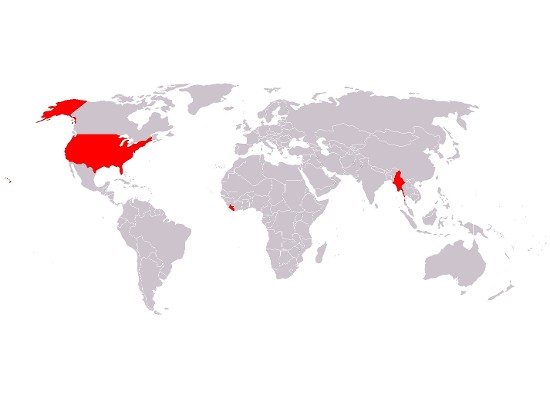- Joined
- Mar 31, 2013
- Messages
- 63,467
- Reaction score
- 28,804
- Gender
- Male
- Political Leaning
- Undisclosed
I was thinking about this as I was working with my daughter this AM baking, and to adust the recipe we had to figure out how many tablespoons in a cup, how many cups in a quart, etc. I, as usual, converted everything in my head to metric and I just showed her the rough metric approximations (tsp=5ml tbsp=15ml, cup 240ml, pint ~ 500ml ) and figured it out from there. She looked at me and said "why dont we just use that measurement in the first place?".
The metric system is much, much more simple than the Imperial system... it makes doing simple things like doubling a recipe, calculating distance, and scaling up fluid and weight measurements much easier. The US is virtually the only nation in the world that sticks with the old, goofy imperial system, which probably costs a whole lot of money (everyone else sells stuff or buys stuff in metric units - the US has to be the exception), and we know has destroyed at least one space mission.
Its a simple system to use. We half-use it already anyway - you buy pop in 2L bottles, all food items are at least marked in metric volume or weight, and people run 5k races. Why dont we complete the job and ditch these worthless british holdovers that even the brits ditched years ago.
I dont know whatever happened to the metric initiative in the 70s (but I'm guessing Reagan killed it because it was too French and would confuse his constituents) and I know getting the old voting crowd to actually want to change would be tough, but why has there been no major initiative in the US for the last thirty years to finally join the rest of the world in measuring sanity?
The metric system is much, much more simple than the Imperial system... it makes doing simple things like doubling a recipe, calculating distance, and scaling up fluid and weight measurements much easier. The US is virtually the only nation in the world that sticks with the old, goofy imperial system, which probably costs a whole lot of money (everyone else sells stuff or buys stuff in metric units - the US has to be the exception), and we know has destroyed at least one space mission.
Its a simple system to use. We half-use it already anyway - you buy pop in 2L bottles, all food items are at least marked in metric volume or weight, and people run 5k races. Why dont we complete the job and ditch these worthless british holdovers that even the brits ditched years ago.
I dont know whatever happened to the metric initiative in the 70s (but I'm guessing Reagan killed it because it was too French and would confuse his constituents) and I know getting the old voting crowd to actually want to change would be tough, but why has there been no major initiative in the US for the last thirty years to finally join the rest of the world in measuring sanity?

